
Helicopter Parents: The Truth and Sharp Essence of the Modern Phenomenon of Overparenting
In this parenting article on helicopter parents, you'll get:
- A sharp definition of overprotective parents!
- Information on how the funny sounding term came about!
- An insightful description of the typical traits, fears and actions of parents who engage in overparenting!
- References to interesting research studies on 'helicoptering'!
- Insights into gender differences between helicopter moms and helicopter dads
- The potential long term effects of overparenting children.
- Helpful tips to reduce the tendencies of being an overprotective parent
What Are Helicopter Parents?
- A Quick Introduction to the Essence of Overprotective Parents
Helicopter parents earn this symbolically interesting title because they seem to 'hover' over their children in an effort of trying to control their lives in order to protect them from harm, disappointment, or mistakes. Not only are these parents overprotective because they fear for their children's safety, but they also attach their own self-worth and identity to the accomplishments and successes of their children.
These parents have a hard time letting go, are constantly intervening, and won't let their children make own mistakes – or at least acknowledge their mistakes so they can learn from them.
Other metaphorical expressions of overprotective parents are:

Curling Parents:
This expression draws its figurative meaning from the sport curling. The image that is supposed to be created in your mind is of parents frantically sweeping the ice with a broom like object, clearing the path for their children so that they may reach their goal in a straight line, easily and unhindered.
The term was coined by one of my fellow countrymen, a Danish psychologist by the name of Bent Hougaard.

Lawnmower Parents:
The meaning of lawnmower parents is very similar to that of curling parents.
The meaning of this analogy is of a parent forcefully clearing an easy to-walk-down line leaving behind a smooth path with no obstacles.
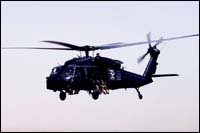
Blackhawk Parents:
Black Hawk refers to a military air assault weapon, a helicopter. In other words, the parents are seen as an aggressive attack unit that will do what ever it takes to ensure a favorable position for their child.
Other descriptive terms for helicopter parents or overprotective parents are: the Toxic Parent, the Bodyguard, the Consumer Advocate, the White Knight, the Rescuer, the Banker, the Agent, and the Safety Expert.
How Did the Expression About?
- The Interesting Origin of the Helicopter Label
This rather funny expression is actually relatively new. "Helicopter parents" was formally born in 1990 by Jim Fay (professional consultant in the areas of parenting and school discipline) and Foster W. Cline (psychiatrist) in their work "Parenting with Love and Logic: Teaching Children Responsibility" (se their website here).
The term is primarily associated with overengaged, overconcerned and overprotective parents of older children, typically college students or even young adults.
These overprotective parents take on the role of being their older children's status negotiator and dominating advocate in order to make sure that their children an easy path to a prestigious life.
These overprotective parents are known to phone up colleges and complain about grades, they may fill out applications on behalf of their kids and they may even immerse themselves into their children's job application process phoning up companies that have recently hired their children in order to negotiate job terms and salary level (see examples here).
These types of parents thus take on a role of problem solver and door opener at the critical age when their children are about to healthily sever the umbilical cord and make their first real independent step into the world as their own person.
The Difference Between Helicopter Moms and Helicopter Dads!
According to Dr Patricia Somers (associate professor of higher education) overprotective parents may have different focus areas that may be attributed to gender.Helicopter moms tend to be preoccupied in a broader, all-encompassing way than dads. These moms tend to dominate, manipulate pull the ropes behind the social scene making decisions about personal friendships, making sure their kids get good college roommates, keeping track of their kids' Facebook status to make sure their friends come from a decent background etc.
They also take on the role of being their kids' unofficial garantor of academic success not only helping their children with their essays but actually doing the research and writing it.
Helicopter dads are typically less detail orientated but more concerned with overall status and career path. Whereas the helicopter mom is more subtle in her intrusion working behind the scenes, the helicopter dad uses overt confrontation going directly to the people in power with requests, complaints and sometimes even threats.
Even though there are gender differences in overparenting, helicopter parenting is found in all social classes of society and ethic groups.
Summing up the Typical Traits, Actions and Fears of Helicopter Parents

1) They Fight Their Children's Battles!
They will call their children's friends to settle disputes, visit teachers to protest a bad grade, communicate with employers, or argue what they perceive to be unfair treatment in social and academic situations.
2) They Do Their Children's Academic Projects!
They will take on their children's school projects, complete their homework to ensure accuracy, and even write college entrance essays.
3) They Mistake their Children's Performances for Their Own Identity
They are embarrassed by their children's failures because they feel they reflect poorly on themselves, so they will engage in a process of justification, claim unfairness, list excuses, or try to 'fix' the issue and then pretend it never happened.
4) They Equate Love with Success and Accomplishment.
Approval is given for expected behavior and disobedience is questioned because it makes the parents look bad and puts the children's safety at risk.
5) They are Extremely Focussed on Maintaining Tight Control
They are preoccupied and sometimes even obsessed with their children's activities and schedules, sometimes carrying this so far as to monitor phone calls, check text messages, and initiate communication several times throughout the day to 'check in' on their children.
6) They are Overprotective
These parents fear for their children's safety to such an extent that they will not allow them to take any risks. These are the stereotypical 'bubble wrap' parents who in the most extreme sense would prefer to lock their children up or create a buffer between them and the real world.
The Short Term and Long Term Effects of
Overparenting on Children
- Unfamiliarity with the Basic Life Skill of Responsibility
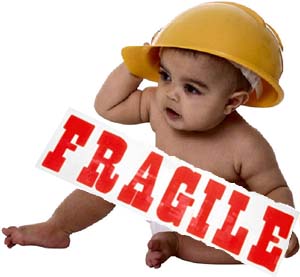
Short term effects of helicoptering may be spotted at quite a young age.
Children that have been too sheltered from basic interaction with life and its consequences may feel overly frustrated in the face of any obstacles, crying for help at the slightest challenge, and struggle emotionally with disappointments having trouble dealing constructively with them.
Because their parents are always fighting their battles and fixing their problems, these children have a hard time realizing that their life is a result of their choices and that it is possible for them to change what they do not like and create the life they want for themselves.
Because of their parents being the constant buffer between themselves and the world outside their home, they are unfamiliar with the basic meaning of responsibility. They haven't become acquainted with the natural relation between cause and effect; That what they do or don't do has an outcome and that they have to face the consequences of that action or non-action.
For instance, they may come to believe that nothing is ever their fault because their overprotective parents have made mistakes disappear rather using them as opportunities to make them learn and grow.
Although these effects of overparenting are often obvious throughout the early developmental years, they seem to reach a problematic climax when children leave home for college or work opportunities.
Suddenly children who have been controlled or 'spoon fed' all their lives are thrown into a situation where they are expected to behave as adults and take responsibility for their own decisions and actions.
What Happens If Overprotective Parents All of a Sudden Sever the Umbilical Cord?
If for some reason helicopter parents decide to suddenly 'give up' helicoptering or are too far away to be able to continue their influence on a daily basis, it does not require a mastermind to deduce that it might have a tremendous, if not chocking impact on their childrenSome children may feel like they've been left in a frustrated, apathetic vacuum, not knowing how to proceed, what to think or feel. They simply haven't been taught the basic life skills of risk estimation, navigating possibilities and making choices.
Other children who have been overparented are thrilled with their new found freedom and might not be able to resist the natural temptation of acting out and trying various risk related activities.
However, as they have not learned that behavior has consequences, they may find themselves in extreme situations that they are not equipped to resolve.
Research Studies on Helicopter Parenting
Researcher and psychologist, Neil Montgomery conducted a study on 300 college students on helicopter parenting at Keene State College in New Hampshire, USA, and presented his findings at the Association of Psychological Science Convention.He chose to focus on college students because they can be seen as being on a threshold of a new life stage as they have taken their first step away from the physical walls of their home and physical presence of their parents.
Neil Montgomery concluded that about 10 percent of the students had parents with overprotective traits. According to Neil Montgomery the negative effects of helicoptering tend to make the children unhealthily "dependent, vulnerable, self-conscious, anxious, impulsive, not open to new ideas and actions."
As regards the reason why some parents lean towards the helicopter approach he says the following,
- "I think what the helicopter parents did is they decided, 'OK we know what good parenting looks like, we're just going to ratchet it up to a new level, and our kids are going to be even better (...) The problem is, when they ratcheted it up, they went too far, and in fact, caused an expansion of childhood or adolescence."
Other studies conducted at Wollongong University in Australia found that overprotective parenting could result in "natural deficit disorder" and might be related to several problems including attention disorders, weight issues, resistance to disease, slowed or underdeveloped cognitive and motor skills, and a lack of empathy.
Based on these findings, it seems that helicopter parenting not only affect children's emotional and social development, but might also impact their physical health.
Helpful Tips in the Effort Reducing a Tendency of Overparenting
Allow Children to Practice Making Choices
Help your children to learn making good independent decisions by not always providing input, praise or judgements.Try sometimes taking step back so that your children can make decisions on their own and get to understand the concept of consequences and realize that their life is a result of the choices they make rather than the ones that you make.
Practicing standing will help your children develop the basic life skills of reasoning, weighing options, and mentally consider possible future effects.
Allow Children to Feel What Responsibility Is!
Try to refrain from 'hovering' or monitoring your children while they are completing a task, but show them that you trust them to work without continual supervision. Even if a job is not done perfectly, resist fixing it or doing it for them.Basically this is about showing your child you trust him or her with a certain responsibility. This trust in your child fuels your child's existential sense of 'I can'. This 'I can' is crucial to building high self esteem, acting on healthy curiosity and actually wanting to engage with and explore the world.
Allow Children to Make Mistakes!
And, be okay with these mistakes.Mistakes are a natural step in self-discovery and independence.
If children are unconditionally supported as they make mistakes, then as they grow, they will have less fear of failure and learn to make wiser choices.
Unconditional support does not mean masking or hiding the consequences of their mistakes. No, unconditional support means showing your children that you are always there a solid pillar of love and guidance. That they can count on you always being there to listen non-judgementally, to give them an empowering hug, to coach them to mentally by teaching them the skill of mapping out possibilities and their consequences etc.
Communicate with Children
Practice listening! Practice asking non-judgemental questions that force your children to think about their actions and their effects.This is basically about raising your children's level of awareness and broaden their general perspective so they get used to always seeing the big picture before they make decisions.
Practice tuning in to spot what it is your child needs. Because sometimes your child needs you to help him or her lay out possibilities and consequence but at other times your child just needs to talk.
Just talking about a situation can is therapeutic in itself, and non-judgemental listening is one of the best gifts a parent can give a child.
Prepare Children to Handle Risks
Being too protective of children preventing them from doing anything that may involve risk is also one of the typical pitfalls of helicopter parents.Not only does the child not learn to handle risk, the child is also likely to suck up and incorporate your fear for the world.
The result of such overparenting, may result in unhappy, insecure, or fearful children who view the world as a scary place that should be avoided.
Rather than never letting them go out alone for fear of strangers, teach them how to protect themselves, recognize signs of danger, and respond appropriately to these situations. Preparation is much more effective than overprotection because it teaches them to function in the real world.
Empower Your Children to Discover Who They Are!
From the time our children are born, and maybe even before, we feel an instinct to protect them, take care of them, and make sure they never experience hurt, fear, or disappointment.However, like everything in life it's all a question of balance. And sometimes we have to resist the urge to hide our children away and protect them from a dangerous world.
The only way a child will become themselves – or their true self – is when they are allowed to be themselves. It's really down to basic logic!
So let them feel the power of responsibility, teach them to make choices, allow them to solve problems, and thereby let them embody the powerful feeling of 'I can' which will pave the way for your children to playfully discover their own identity.
It's not about accomplishments, but about relationships. Just like our children are valued for who they are, not what they do, we as parents need to realize that it also works the same for our children. They love us, not for what we do, but for who we are – their parents.
Your Positive Parenting Ally,
Birgitte

Want to stay in touch and get the latest news?
Sign up
for my free newsletter
Parent Coaching
- For Inner Peace, Clarity and a Deeper Connection to Your Child
 Being a parent can feel like a double-edged sword. Life with kids may feel like the greatest gift you have ever received, while at the same being hugely challenging, often leaving you confused, stressed and overwhelmed.
Being a parent can feel like a double-edged sword. Life with kids may feel like the greatest gift you have ever received, while at the same being hugely challenging, often leaving you confused, stressed and overwhelmed.
When we feel like this, we've lost touch with ourselves. We can't hear our own inner voice, and it's difficult to know what is 'right' for us and how to act.
I offer in-depth parent coaching to help you regain your balance and get back in touch with yourself. From a place of inner peace and clarity, your will find your own answers which will help you reconnect with your child from a place of unconditional love and acceptance.
Read more about my parent coaching here.
Where Would You Like to Go Next?
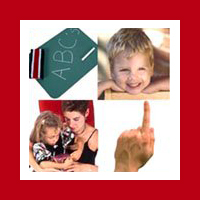 Your Parenting Style: Deep Insights into What Determines Your Parenting Style! |
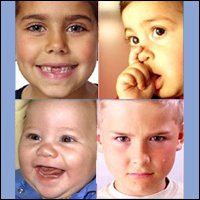 12 Different Styles of Parenting and Child Discipline Strategies: Sharp Definitions and Deep Insights. |
 Deep Insights into Narcissistic Parents: Going Behind Their Controlling Behavior and Mapping Out Its Long Term Consequences. |
 Why Well-Meaning Parents Use Controlling Behavior and Become Controlling Parents! Understanding the Essence of Control and the Common Misuse of Power. |
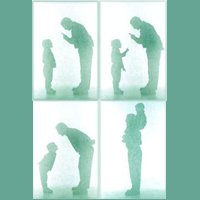 The Advanced Parenting Style Quiz to Learn Who You Are as a Mom or Dad. |
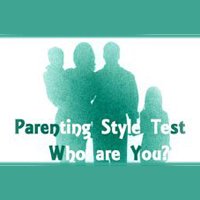 Take an Intelligent Parenting Style Test and Determine Your Parenting Style with This Free Personality Quiz for Parents. |
Back to the top of this page about Overprotective Helicopter Parents: The Truth and Sharp Essence of the Modern Phenomenon of Overparenting
Go to the Positive Parenting Ally Homepage







